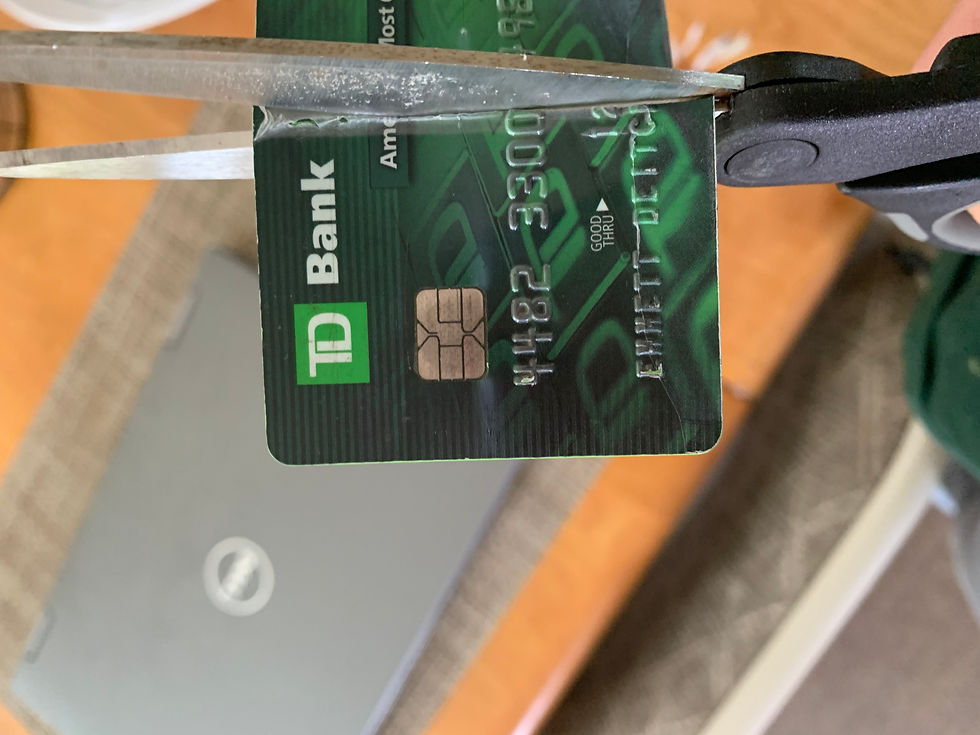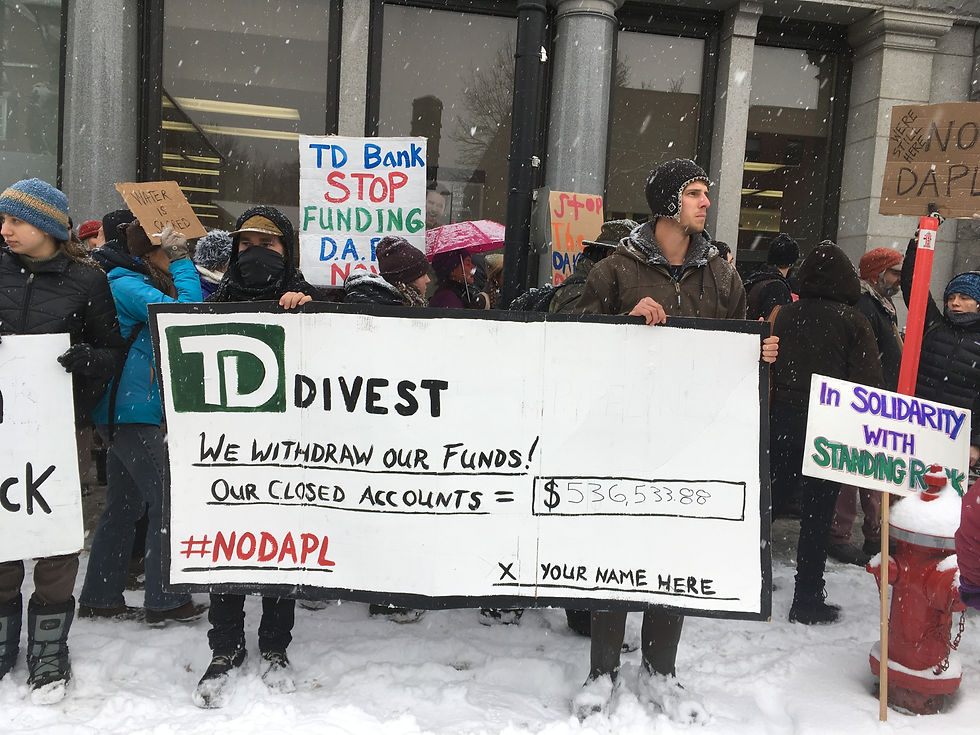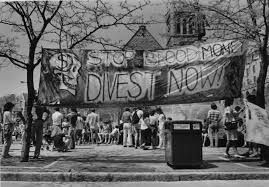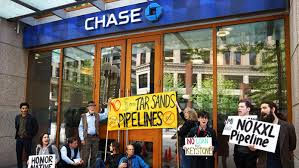Divested & Proud
- Emmett Deitcher

- May 13, 2020
- 4 min read

On Sunday afternoon, I closed my bank account at Toronto-Dominion Bank. All $622.34 of my money no longer sits behind the kelly-green TD logo, and to tell you the truth, I have never felt better!
I opened my TD Bank account during my freshman orientation because there was only one bank tabling inside Pettengill Hall. There were three overjoyed young men dressed in their ridiculous green that were more than happy to help me open a student checking account.

I didn't think too much of it at that time. I figured that there was one ATM on campus and I would use it if I needed money without a surcharge. I had seen enough TV ads and was convinced that they could not be an evil bank; TD Bank is a Canadian bank and our Northern neighbors seem like genuine people (disclaimer: I am Canadian).
However, I realized that TD and many of the large banks that operate in the US both lend irresponsibly and lend to irresponsible companies. I saw the videos of the Dakota Access Pipeline protestors taking a stand against both the fossil fuel companies that were constructing the pipeline and the banks that were funding and enabling this project.

The idea of removing your financial stake from a system or "divesting" was an intriguing new concept to me. My parents were both involved in the South African apartheid divestment movement in the 1980s which was advocating for the US to financially separate itself from South Africa in order to end its racial apartheid.
Even though most Canadian banks are reducing their fossil fuel investments, TD Bank has doubled down in recent years: increasing its loans to pipelines, oil and gas firms to $9.22 billion annually. The next question that everyone brings up next is "Emmett, do you really think that TD bank cares that you took $622 away from them, they manage over a trillion dollars in assets?". This question used to make me feel stupid because my action would never be big enough to take on the scope of the challenge. However, my refusal to deposit money in any bank that funds unsustainable industries is a lifetime of paychecks that these banks will never have access to. When I finally cut up my card, it was nice to know that my personal bank was never going to be directly funding ecological degradation.

Recently, JP Morgan Chase has committed to pulling back many of its investments in coal and arctic drilling due to public outrage and divestment losses. Wells Fargo followed suit in regards to the arctic drilling ban. JP Morgan Chase and Wells Fargo are some of the largest banks in the US so this is huge news! It is clear that divestment is working slowly but surely.
If any of you want a road map to your own personal divestment, it is REALLY EASY!
1. You move all the funds out of your account at a big bad bank (TD, Wells Fargo, Chase, Bank of America, etc.)
2. You tell them that you are closing your account because of their investment in fossil fuels and adjacent industries.
3. You open another bank account at a socially responsible bank or credit union.
4. You live a happy life.
I opened an account at Amalgamated Bank which is one of the only union-owned banks in the US. They have a really thoughtful mission statement and their investment portfolio prioritizes clean energy production, affordable housing, and other socially beneficial industries. Even though they are based in NYC, they have an arrangement with the 60,000 AllPoint ATMs nationwide so that you can draw money with no ATM fees. If you have any questions or concerns about the process, please reach out!
In sum, I opened a bank account with TD because they are "America's most convenient bank" (literally their motto) and because of the on-campus ATM, which I've only used like 5 times total. Even though our simplest daily routines such as showering and eating a turkey sandwich can damage the natural world around us, we must not feel guilty about our sustenance. However, our addiction to convenience and efficiency will be our downfall. From Prime 2-day shipping to fast fashion, it is obvious that these distribution systems were developed to gratify our most instantaneous desires, whether these products are necessary or not. I am not advocating for you to stop purchasing the things that bring you joy or start walking everywhere but I think it's important to think about where we are putting our money. In my opinion, there is an ethical consumption under capitalism, we just have to find our own personal equilibrium. For me, I could tolerate putting my money in a slightly less convenient place but for some people that is not a viable option. Anything you do advances the cause! Be proud of the little changes that you make in your life: whether that's shaving 30 seconds off your shower or doing Meatless Monday. Don't get down on yourself for not doing enough, but find ways to support yourself so that you have the willpower to change.







Comments